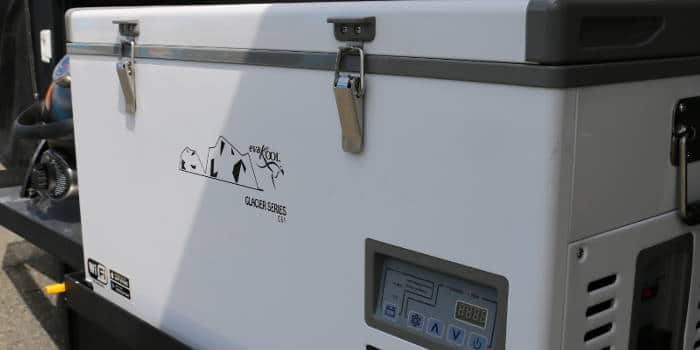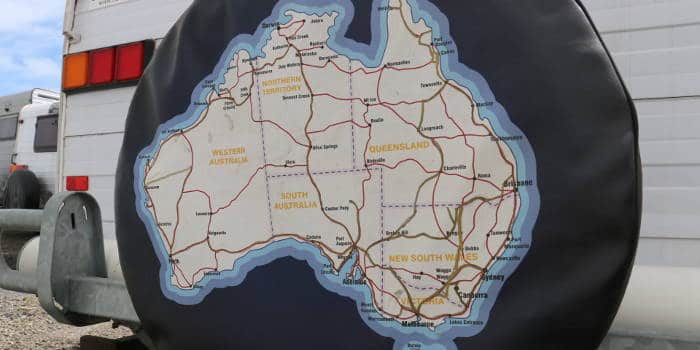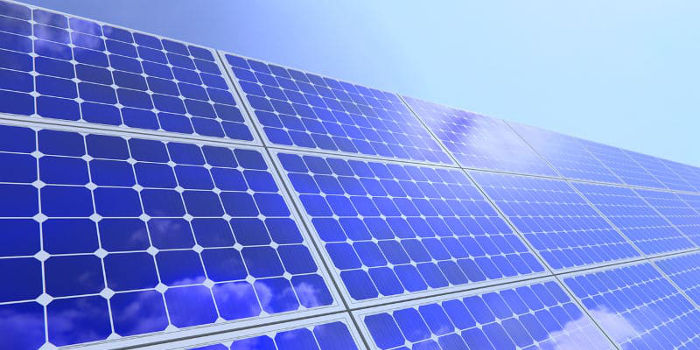If you’re new to caravanning, then caravan electrics and the differences between 12volt and 240 volt systems, may initially cause confusion. Caravan and RV electrics are definitely a lot more complicated than they used to be. If you buy a new caravan, camper trailer, or RV, most of the electrics will be taken care of. Cabling will be securely run through the walls or the roof, and the electrics will be safely installed to meet Australian regulations and to withstand continual movement and vibrations.
If you want to retro fit a caravan or camper trailer electrical system or upgrade with a new solar system so you can venture off road, it’s a good time to get your head around the basics of caravan electrics.
Caravan 240 Volt Systems
When it comes to caravan electrics, there are 240 volt systems and 12volt systems. 240 volt systems power the big stuff in your caravan and the things that use a lot of energy, including the fridge, tv, hairdryer and kettle, microwave and air conditioner. Air conditioning, for example uses about 60 amps per hour, compared with 0.5 amps per hour for laptops, lights or a water pump. The 240 volt system is also known as mains power. When you stay at a caravan park and you plug in at a powered site, you are using 240 volt mains power.
All 240 volt electrical work is covered by Australian regulations and can only be worked on by a qualified and certified electrician. This is not the work for DIYers.

Caravan 12 Volt Systems
12 volt systems are powered from an onboard battery, and provide power for the water pump, as well as strip lighting and a toilet pump. The twelve volt system runs everything that uses low wattage. 12 volt systems allow you to keep your lights on and still use your water pump if there is a loss of mains power – as long as your battery is charged.
Batteries
At the centre of the 12 volt system is a battery, which provides power. Batteries can be charged via an Anderson plug connected to mains electricity, via a multi stage charger or via solar panels. The most common battery is a 12 volt deep cycle battery. A deep cycle battery is sufficient for the traveler who stays in caravan parks most of the time and uses a powered site. An AGM battery charges more easily and will last a little longer than a standard deep cycle battery. It does cost a bit more than a deep cycle battery. Standard Deep cycle batteries for caravan and camping are designed to discharge a consistent amount of energy for longer, unlike a typical car battery which delivers high energy or shorter bursts.
Another option is a lithium-ion battery. These batteries are considerably more expensive, much lighter in weight, and they provide more consistent voltage for 90 percent of discharge. For maximum performance, it is important to use the correct charger, if you are using a lithium-ion battery.
Battery Performance
If you’re spending more time travelling off the beaten track, then a longer lasting battery is recommended. To get the best battery performance and ensure you get the longest life, batteries need to be checked regularly and charged properly. You can damage a battery if it is under or over charged.
The other important thing to understand about batteries is that the energy you get from a standard battery will deplete as the battery uses energy. For example, if you have a 100ah standard deep cycle battery, it supplies 1 amp of energy for 100, or 2 amps of energy for 50 hours. But once the charge of the battery gets down to 50% or 30%, it can no longer provide the same energy. It’s for this reason that maintaining battery charge is so important.
Unlike 240 volt systems, which can only be worked on by a qualified electrician, 12 volt systems can be worked on by non electricians. If you are working on a 12 volt system, make sure to use electrical cable of the right size. Make sure to check the diameter of the conductor (excluding the insulation around the cable) to make sure it is the right size for your 12 volt system.
Solar Systems
Solar energy is increasingly popular on our homes, and even more practical for caravans. Solar supplies free energy from the sun to power a battery that allows you to travel to remote locations – without access to mains electricity – and still operate your fridge and basic appliances.
A Caravan repairs service that offer caravan electrics, will be able to install a solar system on your caravan, as well as providing the best advice on a 12 volt system.
Air Conditioning & Heating In Your Caravan
Being cool in summer and warm in winter is an important part of ensuring your holiday is enjoyable. Many people with an older caravan that has old heating and cooling technology, want to upgrade to more effective climate control. This common caravan modification, involves installing caravan air conditioning and upgrading existing caravan electrics. Different types of heating and cooling options fit different types of caravans. The air conditioning in a pop top caravan must be installed inside the caravan (sometimes under the bed), while the air conditioning unit on a pop top caravan has the option of an instal on the roof.
Australian Electrical Regulations
Australian and New Zealand regulations covering caravan electrics include AS/NZ 3000:2007 and AS/NZ 3001:2008. The latter regulation was amended in 2012 to regulate that all circuit breakers and powerpoints in a caravan or RV need to be double pole. This means they must have both the active and neutral supplies switched. In a conventional house powerpoint, only the active is switched.
Safety: Test & Tagging
You should get into the habit of regularly checking your leads for any nicks or cracks in the insulation, and replacing any damaged cords. Don’t wait for a short, a power failure, or worse, before starting a regular safety check for your caravan. It’s good to get into the habit of doing a DIY caravan maintenance and check at the same time each year. Caravan maintenance for winter, or at the beginning of spring – before the holiday season begins – is an ideal time. Anything you identify that you can’t do yourself (including complicated caravan electrics that require a qualified electrician) can then be dealt with by a professional at a caravan service centre.
Your Caravan Electrics
With caravans being fitted with more and more comforts – providing heating, cooling, onboard entertainment, and even washing machines – most people have an expectation that their caravan electrics will be able to meet their energy needs without a problem.
Energy needs depend on whether you plan to stay in powered caravan parks or you want to be self sufficient. These days more people are installing solar panels to use as an energy source for caravanning, even if most of the time they stay at parks. It just makes sense. It’s free and clean energy.
If you’re looking to install improved heating or cooling, your current energy setup does not meet your needs, or you want to install a solar system, contact the team at Emu Caravan Repairs. We’re located in Ferntree Gully and do caravan electrical installations, modifications and repairs for caravans from all over Melbourne



12 thoughts on “Caravan Electrics Explained”